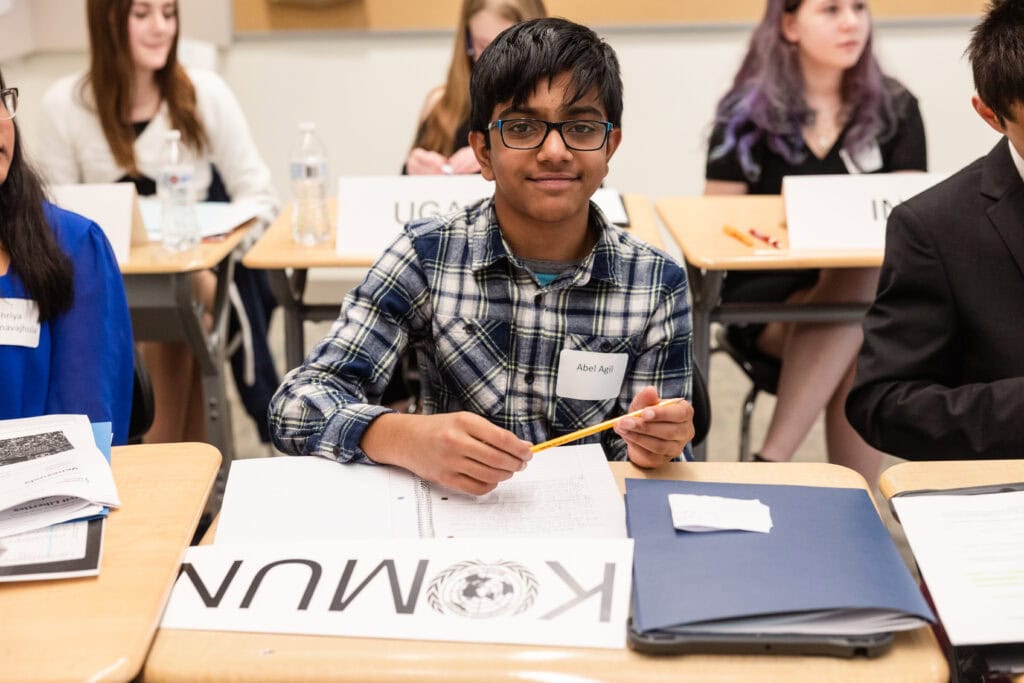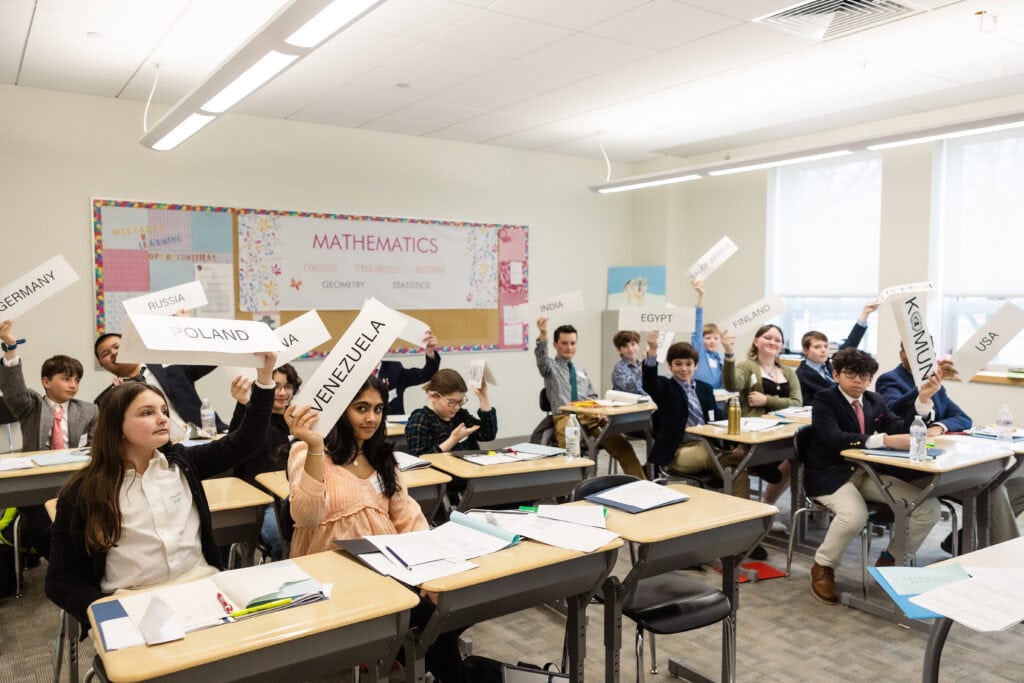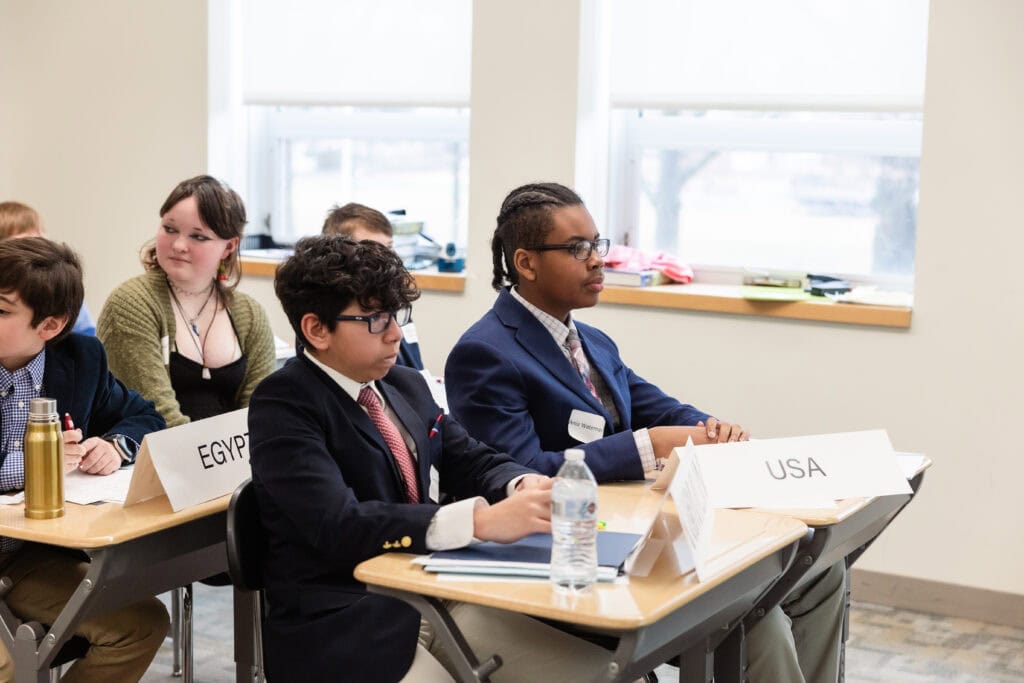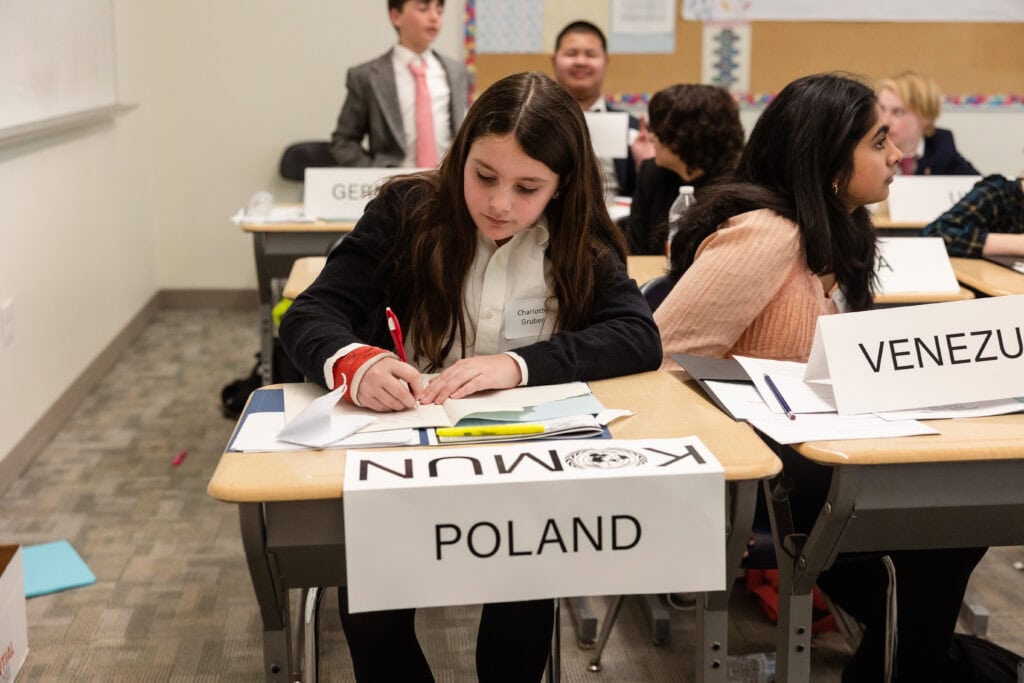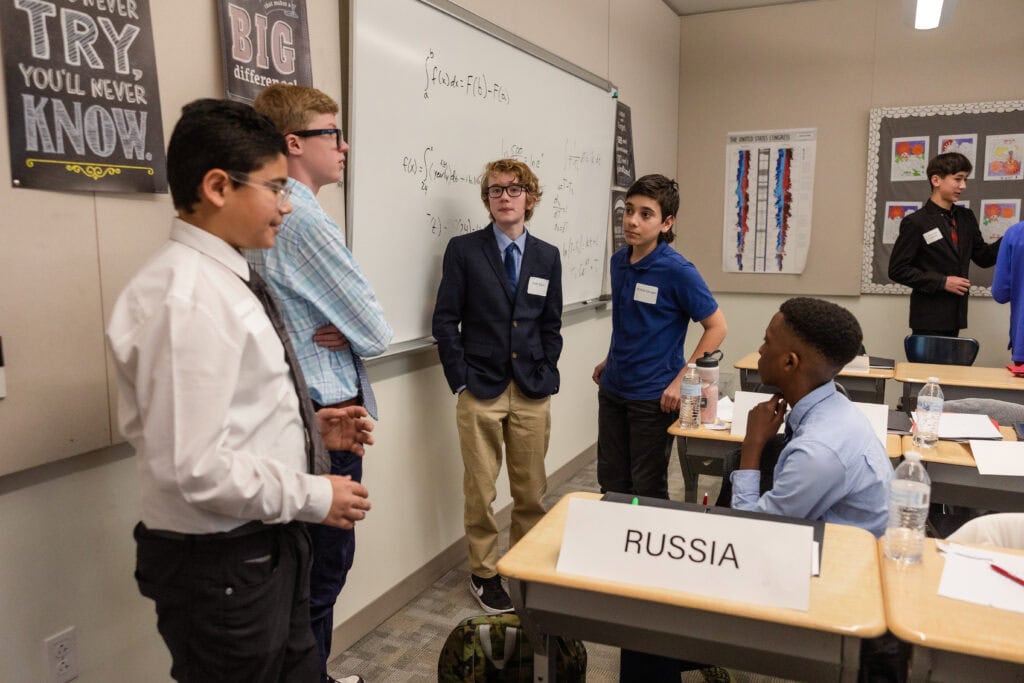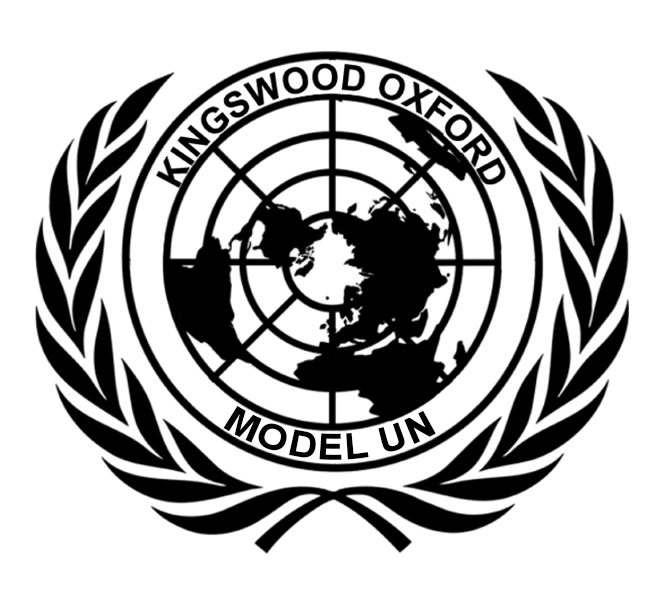Like real UN bodies, Model UN committees have lengthy agendas and many delegates who want to convey their country’s positions. To help maintain order, Model UN conferences adopt rules of procedure to establish when a delegate may speak and what he or she may address. The rules vary from conference to conference, and it is important to remember that rules exist to help the delegates move the agenda, rather than to confuse or intimidate them. With that in mind, KOMUN will use simplified rules of parliamentary procedure, which your committee chairs will go over with you at the first Committee Session. The basic structure at Model UN is formal debate as well as informal debate, called caucusing.
Formal Debate
During formal debate, the staff maintains a speakers list and delegates speak in the order they are listed. At this time, delegates have an opportunity to share their views with the entire committee. Delegates make speeches, answer questions, and introduce and debate resolutions and amendments.
Moderated Caucus
During a caucus, which is a temporary recess, the rules of procedure are suspended. To go to a moderated caucus, a delegate makes a motion to suspend debate and the committee votes. Caucusing helps to facilitate discussion, especially when there is a long speakers list. A moderated caucus is a mixture of both formal and informal debate. Anyone may speak if they raise their placard and are called on by the Chair.
Unmoderated Caucus
In an unmoderated caucus, delegates meet informally with one another and the committee staff to discuss and negotiate draft resolutions, amendments and other issues.
For a more detailed description of general Model UN Rules of Procedure, go to:
http://www.unausa.org/images/content/GC_Model_UN/Model_UN_Prep/ROP_Chart.pdf
http://www.unausa.org/global-classrooms-model-un/how-to-participate/model-un-preparation/rules-of-procedure
http://www.unausa.org/global-classrooms-model-un/how-to-participate/model-un-preparation/caucusing
Resolutions
The final results of discussion, writing and negotiation are resolutions—written suggestions for addressing a specific problem or issue. Resolutions, which are drafted by delegates and voted on by the committee, normally require a simple majority to pass (except in the Security Council). Only SecurityCouncil resolutions can compel nations to take action. All other UN bodies use resolutions to make recommendations or suggestions for future action.
Resolutions have a particular format, made up of “preambulatory” and “operative clauses. For a detailed look at how to write and introduce resolutions, see: http://www.unausa.org/global-classrooms-model-un/how-to-participate/model-un-preparation/resolutions
For a list of sample perambulatory and operative clauses:
http://www.unausa.org/global-classrooms-model-un/how-to-participate/model-un-preparation/resolutions/preambulatory-and-operative-clauses
For a sample UN Resolution, see: http://www.unausa.org/global-classrooms-model-un/how-to-participate/model-un-preparation/resolutions/sample-resolution

